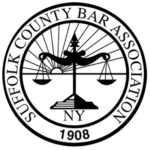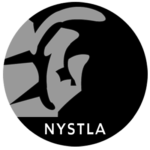
From the Office of Governor Andrew Cuomo
Effective at 8PM on Sunday, March 22, all non-essential businesses statewide will be closed; Non-essential gatherings of individuals of any size for any reason (e.g. parties, celebrations or other social events) are canceled or postponed at this time; Any concentration of individuals outside their home must be limited to workers providing essential services and social distancing should be practiced; When in public individuals must practice social distancing of at least six feet from others; Businesses and entities that provide other essential services must implement rules that help facilitate social distancing of at least six feet; Individuals should limit outdoor recreational activities to non-contact and avoid activities where they come in close contact with other people; Individuals should limit the use of public transportation to when absolutely necessary and should limit potential exposure by spacing out at least six feet from other riders; Sick individuals should not leave their home unless to receive medical care and only after a telehealth visit to determine if leaving the home is in the best interest of their health; Young people should also practice social distancing and avoid contact with vulnerable populations; andUse precautionary sanitizer practices such as using isopropyl alcohol wipes.
“Matilda’s Law” includes the following rules for vulnerable populations:
- Remain indoors
- Can go outside for solitary exercise
- Pre-screen all visitors and aides by taking their temperature and seeing if a person is exhibiting other flu-like symptoms
Do not visit households with multiple people - Wear a mask when in the company of others
- To the greatest extent possible, everyone in the presence of vulnerable people should wear a mask
- Always stay at least six feet away from individuals
- Do not take public transportation unless urgent and absolutely necessary.
Which workers are considered essential during COVID-19 outbreak?
New York state and Gov. Andrew Cuomo have ordered all non-essential workers to stay home as coronavirus cases continue to climb.
The New York state Department of Economic Development issued guidance on what exactly is essential. Their list is as follows:
1. Essential health care operations including research and laboratory services, hospitals, walk-in care health facilities, veterinary and animal health services, elder care, medical wholesale and distribution, home health care workers or aides, doctor and dentist offices, nursing homes, or residential health care facilities or congregate care facilities and medical supplies and equipment providers.
2. Essential infrastructure including utilities like power generation, fuel supply and transmission, public water and wastewater, telecommunications and data centers, airports/airlines, transportation infrastructure such as bus, rail or for-hire vehicles and garages.
3. Essential manufacturing including food processing, including all foods and beverages, chemicals, medical equipment/instruments, pharmaceuticals, safety and sanitary products, telecommunications, microelectronics/semi-conductor, agriculture/farms, paper products.
4. Essential retail including grocery stores, all food and beverage stores, pharmacies, convenience stores, farmer’s markets, gas stations, restaurants/bars (only for takeout/delivery), hardware and building material stores.
5. Essential services including trash and recycling collection, processing and disposal, mail and shipping services, laundromats/dry cleaning, building cleaning and maintenance, child care services, auto repair, warehouse/distribution and fulfillment, funeral homes, crematoriums and cemeteries, storage for essential businesses, animal shelters or animal care/ management.
6. News media.
7. Financial Institutions including banks, insurance, payroll and accounting.
8. Providers of basic necessities to economically disadvantaged populations including homeless shelters and congregate care facilities, food banks, human services providers whose function includes the direct care of patients in state-licensed or funded voluntary programs; the care, protection, custody and oversight of individuals both in the community and in state-licensed residential facilities; those operating community shelters and other critical human services agencies providing direct care or support.
9. Construction including skilled trades such as electricians, plumbers, other related construction firms and professionals for essential infrastructure or for emergency repair and safety purposes.
10. Defense and national security-related operations supporting the U.S. government or a contractor to the U.S. government.
11. Essential services necessary to maintain the safety, sanitation and essential operations of residences or other essential businesses including law enforcement, fire prevention and response, building code enforcement, security, emergency management and response, building cleaners or janitors, general maintenance whether employed by the entity directly or a vendor, automotive repair, disinfection and doormen.
12. Vendors that provide essential services or products, including logistics and technology support, child care and services needed to ensure the continuing operation of government agencies and provide for the health, safety and welfare of the public including logistics, technology support, child care programs and services, government owned or leased buildings and essential government services.
The release says if your question about what is and isn’t essential remains unanswered, Empire State Development can be contacted HERE.
Those looking to request designation as essential can click HERE.
Content Source: News12




